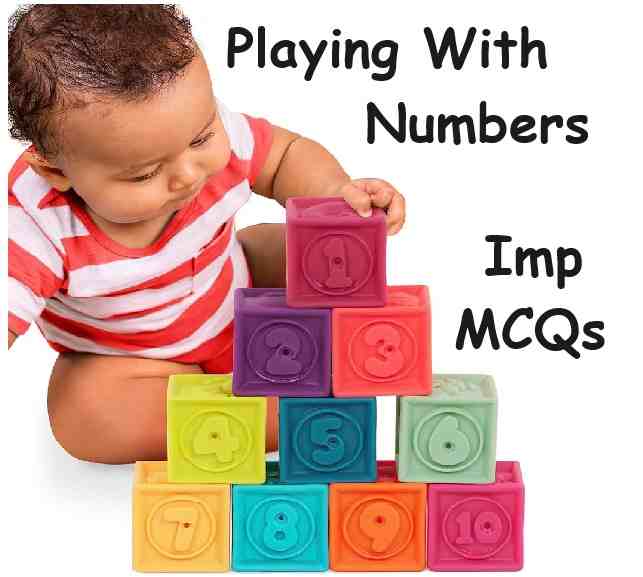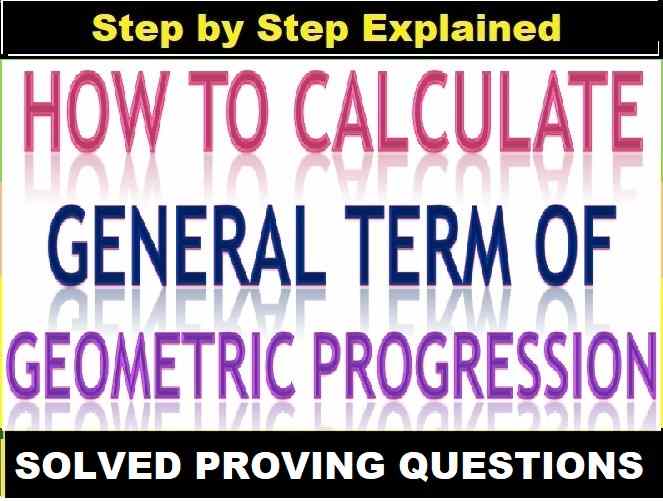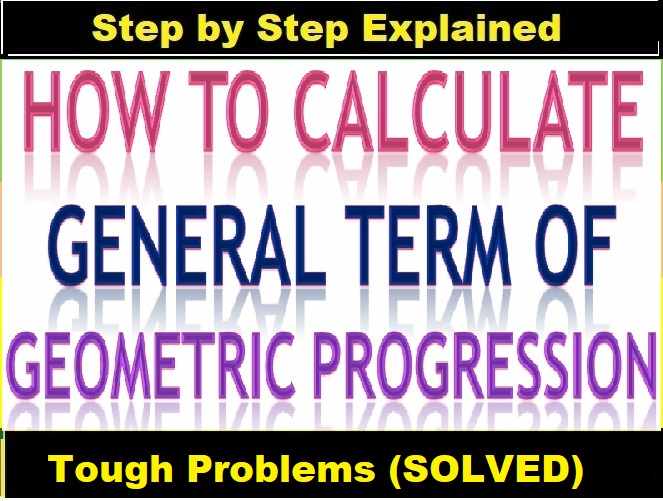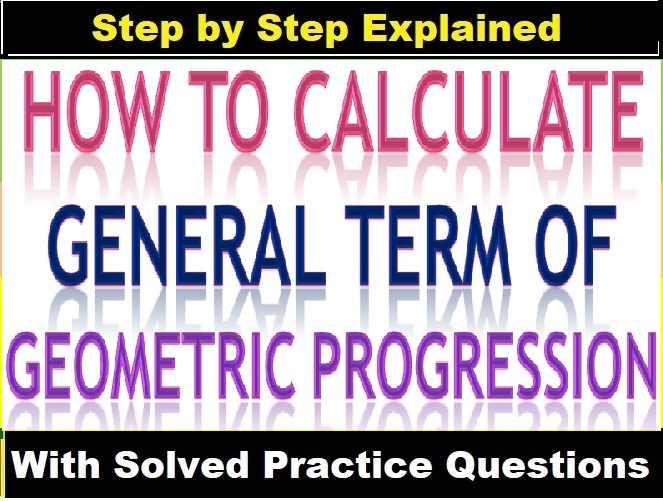Playing with Numbers MCQs Class 6 RS Aggarwal Exe-6E Goyal Brothers Prakashan ICSE Foundation Mathematics Solutions. In this article you will learn Multiple Choice Questions on Playing with Numbers. Visit official Website CISCE for detail information about ICSE Board Class-6 Mathematics.

Playing with Numbers MCQs Class 6 RS Aggarwal Exe-6E Goyal Brothers Prakashan ICSE Foundation Mathematics Solutions
| Board | ICSE |
| Publications | Goyal brothers Prakashan |
| Subject | Maths |
| Class | 6th |
| Ch-6 | Playing with Numbers |
| Writer | RS Aggrawal |
| Book Name | Foundation |
| Topics | Solution of Exe-6E (MCQs) |
| Academic Session | 2023 – 2024 |
Multiple Choice Questions on Playing with Numbers
Playing with Numbers Class 6 RS Aggarwal Exe-6E Goyal Brothers Prakashan ICSE Foundation Mathematics Solutions
Exercise- 6E, MCQs :
Que-1: Which of the following numbers is divisible by 8?
(a) 536146 (b) 789214 (c) 955626 (d) 813256
Solution- (d) 813256
Reason: If the last three numbers are zero or divisible by 8, the whole number is divisible by 8.
Que-2: Which of the following numbers is divisible by 9?
(a) 314526 (b) 578142 (c) 964315 (d) 876421
Solution- (b) 578142
Reason: If the sum of the digits are divisible by 9, then the number is divisible by 9.
Que-3: Which of the following numbers is divisible by 11?
(a) 3333333 (b) 66666 (c) 999999 (d) none of these
Solution- (c) 999999
Reason: the given number can only be completely divided by 11 if the difference of the sum of digits at odd position and sum of digits at even position in a number is 0 or 11.
Que-4: Which of the following numbers is divisible by 6?
(a) 345672 (b) 154636 (c) 236794 (d) none of these
Solution- (a) 345672
Reason: A given number is divisible by 6 if it ends with digits 0,2,4,6,8 and the sum of the digits is divisible by 3.
Que-5: Which of the following is a prime number ?
(a) 81 (b) 87 (c) 91 (d) 97
Solution- (d) 97
Reason: All the natural numbers which are divisible by 1 and number itself are called prime numbers.
Que-6: Which of the following is a composite number ?
(a) 23 (b) 29 (c) 87 (d) 97
Solution- (c) 87
Reason: composite numbers are those numbers which have more than two factors i.e 1 and the number itself.
Que-7: Which of the following is a pair of co-primes ?
(a) 13, 91 (b) 23, 46 (c) 19, 20 (d) 63, 84
Solution- (c) 19, 20
Reason: HCF of co-prime numbers should be 1. (There should be no other common factor except 1)
13 and 91 have 13 as their common factor.
23 and 46 have 23 as their common factor.
19 and 20 have 1 as their common factor.
63 and 84 have 3 as their common factor.
Hence, pair of co-primes numbers is (19,20)
Que-8: The HCF of 72, 90 and 96 is
(a) 18 (b) 12 (c) 6 (d) 9
Solution- (c) 6
Reason: let’s factorize each number:
72 = 2^3 * 3^2
90 = 2 * 3^2 * 5
96 = 2^5 * 3
The common prime factors are 2 and 3.
HCF = 2 x 3 = 6.
Que-9: The HCF of 147, 210 and 294 is
(a) 7 (b) 14 (c) 28 (d) 21
Solution- (d) 21
Reason: let’s factorize each number:
147 = 3^2 * 7
210 = 2 * 3 * 5 * 7
294 = 2 * 3 * 7^2
The common prime factors are 3 and 7.
HCF = 3 x 7 = 21.
Que-10: 289/391 when reduced to the lowest term is
(a) 11/23 (b) 13/31 (c) 17/31 (d) 17/23
Solution- (d) 17/23
Reason: The GCD of 289 and 391 is 17.
So, we divide both the numerator and the denominator by 17:
289 ÷ 17 = 17
391 ÷ 17 = 23
Therefore, the fraction 289/391 when reduced to the lowest terms is 17/23.
Que-11: The LCM of 12, 15, 20, 27 is
(a) 270 (b) 360 (c) 480 (d) 540
Solution- (d) 540
Reason: factorize each number:
12 = 2^2 * 3
15 = 3 * 5
20 = 2^2 * 5
27 = 3^3
Multiplying these highest powers, we get:
LCM = 2^2 * 3^3 * 5^1 = 4 * 27 * 5 = 540.
So, the LCM of 12, 15, 20, and 27 is 540.
Que-12: If a and b are co-primes, then their LCM is
(a) a+b (b) ab (c) a/b (d) 1
Solution- (b) ab
Reason: if a and b are coprime, then:
LCM (a,b) = a×b
This is because when two numbers are coprime, they share no common factors other than 1. Therefore, the LCM is the smallest positive integer that is divisible by both a and b, which is just their product.
Que-13: The HCF of two numbers is 23 and their LCM is 276. If one of the numbers is 92, what is the other number ?
(a) 69 (b) 46 (c) 92 (d) none of these
Solution- (a) 69
Reason: HCF = 23
LCM = 276
One number = 92
HCF × LCM = Product of the two numbers
Let, the other number = x
According to the question,
⇒ 92 × x = 23 × 276
⇒ x = (23 × 276)/92, So = 69
Que-14: The product of two numbers is 2160 and their HCF is 16. Then, the LCM of these numbers is
(a) 270 (b) 540 (c) 135 (d) 405
Solution- (c) 135
Reason: HCF = 16
Product = 2160
We know that: Product = HCF × LCM
Substituting the given values:
2160 = 16 × LCM
Now, we can solve for the LCM:
LCM = 2160/16 = 135
So, the LCM of the two numbers is 135.
Que-15: The smallest 4-digits number divisible by each one of 4,5 and 6 is
(a) 1060 (b) 1040 (c) 1020 (d) 1080
Solution- (c) 1020
Reason: let’s find the LCM of 4, 5, and 6:
Prime factorization:
4 = 2^2
5 is prime.
6 = 2 × 3
LCM will have each prime factor raised to its highest power:
LCM (4,5,6) = 2^2 × 3 × 5 = 60
The smallest 4-digit number is 1000.
we divide 1000 by 60 and round up to the nearest integer:
1000/60 ≈ 16.67
Rounding up, we get 17.
So, the smallest 4-digit multiple of 60 is 60×17=1020.
Que-16: The least number divisible by each of the number 15,20,24,32 and 36 is
(a) 1660 (b) 1440 (c) 2490 (d) 2160
Solution- (b) 1440
Reason: let’s factorize each number:
15 = 3 * 5
20 = 2^2 * 5
24 = 2^3 * 3
32 = 2^5
36 = 2^2 * 3^2
Multiplying these highest powers, we get:
LCM = 2^5 × 3^2 × 5^1 = 32 × 9 × 5 = 1440.
Que-17: The LCM of 87 and 145 is
(a) 435 (b) 870 (c) 1305 (d) 1740
Solution- (a) 435
Reason: let’s factorize each number:
87 = 3 * 29
145 = 5 * 29
Multiplying these highest powers, we get:
LCM = 3^1 * 5^1 * 29^1 = 3 * 5 * 29 = 435.
Que-18: 561/748 when reduced to the lowest terms is
(a) 3/4 (b) 11/14 (c) 13/14 (d) 23/24
Solution- (a) 3/4
Reason: let’s find the GCD of 561 and 748.
561 = 3 * 11 * 17
748 = 2^2 * 11 * 17
The common prime factors are 11 and 17.
So, the GCD of 561 and 748 is 11×17 = 187.
Now, let’s divide both the numerator and the denominator by the GCD:
561/748 = (561÷187)/(748÷187) = 3/4.
Que-19: The HCF of 3/16, 5/12 and 7/8 is
(a) 1/4 (b) 1/48 (c) 105/4 (d) 105/48
Solution- (b) 1/48
Reason: Now the LCM of 16,12,8 can be found by using the factorization method, factorizing the numbers we have,
16 = 2*2*2*2
12 = 2*2*3
8 = 2*2*2
So the LCM = 2*2*2*2*3 = 48
So the HCF of 3/16, 5/12, 7/8 will be,
HCF = HCF/LCM
HCF = 1/48.
Hence, the HCF of 3/16, 5/12, 7/8 is 1/48.
Que-20: The LCM of 1/3, 5/6, 5/9 and 10/27 is
(a) 5/24 (b) 5/27 (c) 5/3 (d) 10/3
Solution- (d) 10/3
Reason:
— : end of Playing with Numbers MCQs Class 6 RS Aggarwal Exe-6E Goyal Brothers ICSE Mathematics Solutions :–
Return to :- ICSE Class -6 RS Aggarwal Goyal Brothers Math Solutions
Thanks
Please share with yours friends if helpful


